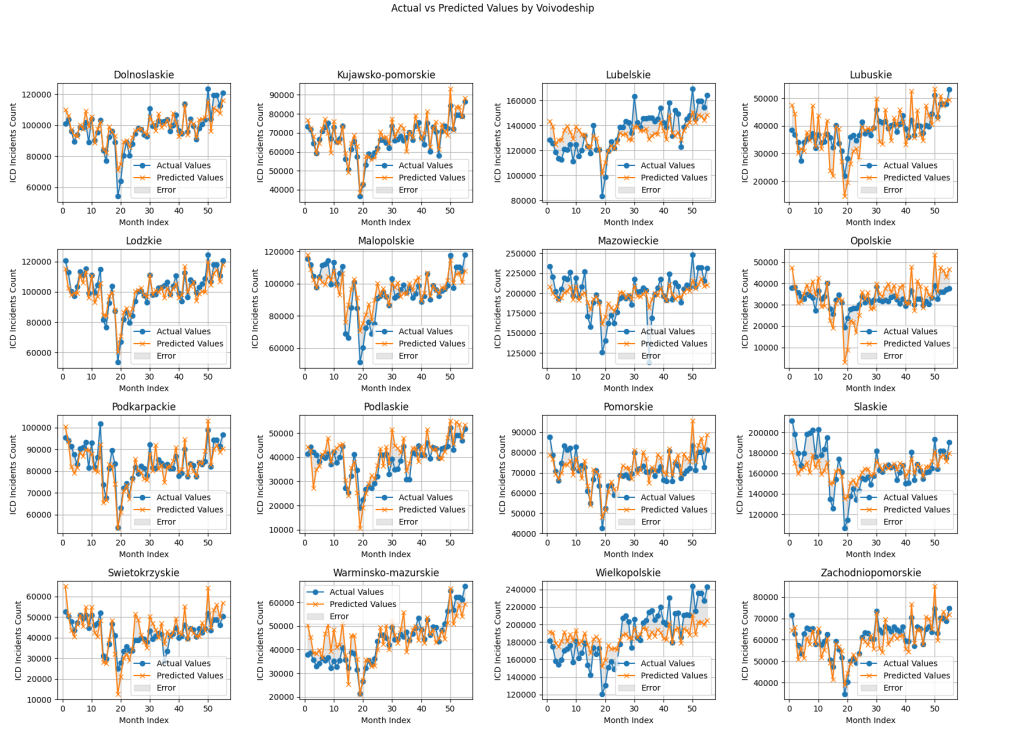Copernicus climate data’s potential to support healthcare predictions

Climate change is bringing new challenges to healthcare management. Extreme temperatures can exacerbate existing cardiovascular conditions.
As temperatures continue to rise and heatwaves become more frequent, understanding connections between environmental parameters and health outcomes is crucial for addressing these emerging challenges.
The Copernicus demonstrator for healthcare is an initiative by EUSPA that collaborates with health companies to foster innovative solutions leveraging Copernicus data. One such collaboration is with RSQ Technologies, a Polish MedTech company. During the project, the company investigated the link between heatwaves and the incidence of cardiovascular diseases in Poland. RSQ Technologies aim to develop a predictive algorithm that can empower various healthcare stakeholders to better respond to climate change and save lives.
During the project, the company employed AI and Machine Learning algorithms to analyse Copernicus parameters such as air temperature, dewpoint temperature and surface pressure provided by the Copernicus Climate Change Service . When associating the data with cardiovascular disease information at the national level, they identified links between the incidence of these diseases and climate conditions.

The growing demand for predictive tools to alleviate the pressures on healthcare systems due to climate change is evident. This trend is exemplified by the interest of major healthcare providers like Medicover , a leading international healthcare and diagnostic services provider, in the project. During a workshop with RSQ Technologies, John Stubbington, Chief Operating Officer at Medicover Healthcare Services, emphasised the challenges of predicting staffing needs, particularly in emergencies. “At a national level, it is important to anticipate the demand for healthcare professionals,” he noted, “Every small percentage improvement in healthcare is important.”
As the next steps, the team aims to further develop the algorithm, supporting prediction functions. One promising application is the development of an early warning system that can alert healthcare providers about potential increases in cardiovascular incidents linked to extreme weather conditions, facilitating hospital staff allocation and patient management. Additionally, RSQ Technologies envision providing predictive analytics for insurers, enabling better assessment of climate-related health risks and improved management of costs.
EUSPA’s Copernicus demonstrators, through real-life examples, illustrate the growing role of EU Space in healthcare, complementing and expanding the sector's capabilities. With Copernicus data at their core, these activities enable new tools to monitor environmental factors influencing health, such as air quality, extreme temperatures, and water pollution.
“EUSPA Copernicus Demonstrators are focusing on market sectors in which the use of Copernicus data is still limited, such as Healthcare. This initiative significantly contributes to expanding the Copernicus user base and bringing innovative solutions to the market." declared Fiammetta Diani, EUSPA Head of Market, Downstream and Innovation department.
Media note: This feature can be republished without charge provided the European Union Agency for the Space Programme (EUSPA) is acknowledged as the source at the top or the bottom of the story. You must request permission before you use any of the photographs on the site. If you republish, we would be grateful if you could link back to the EUSPA website.